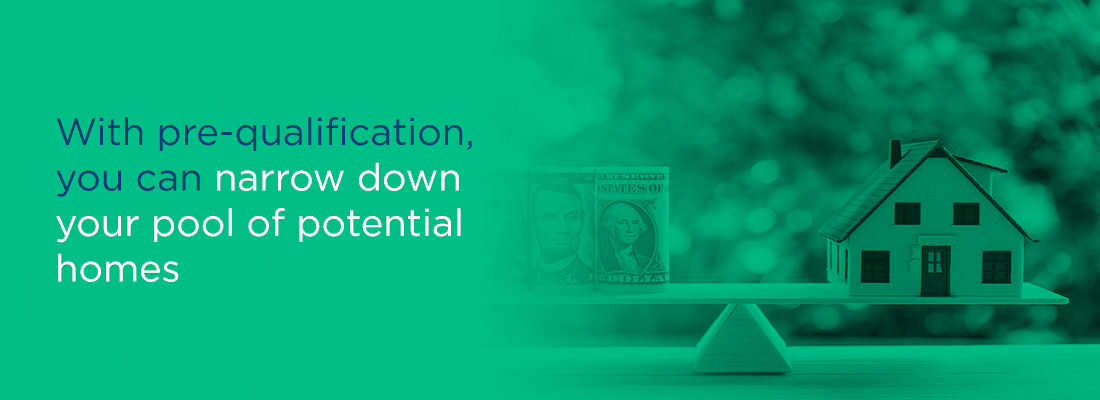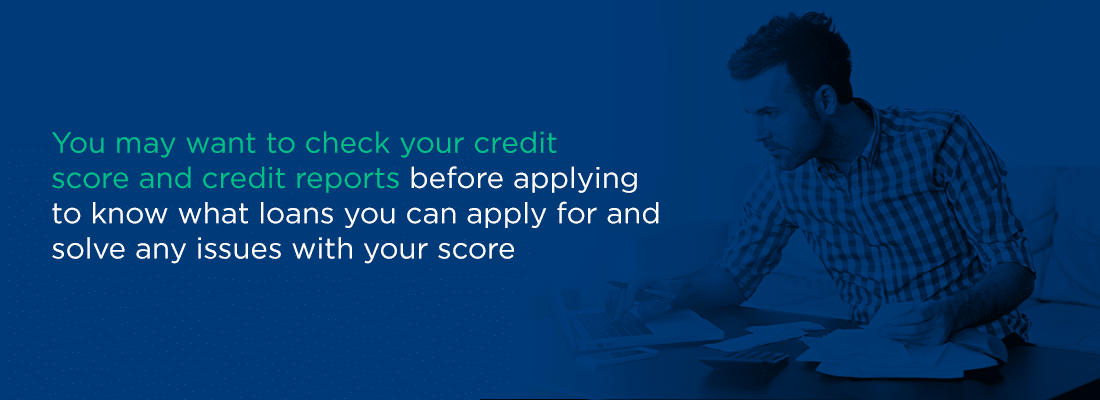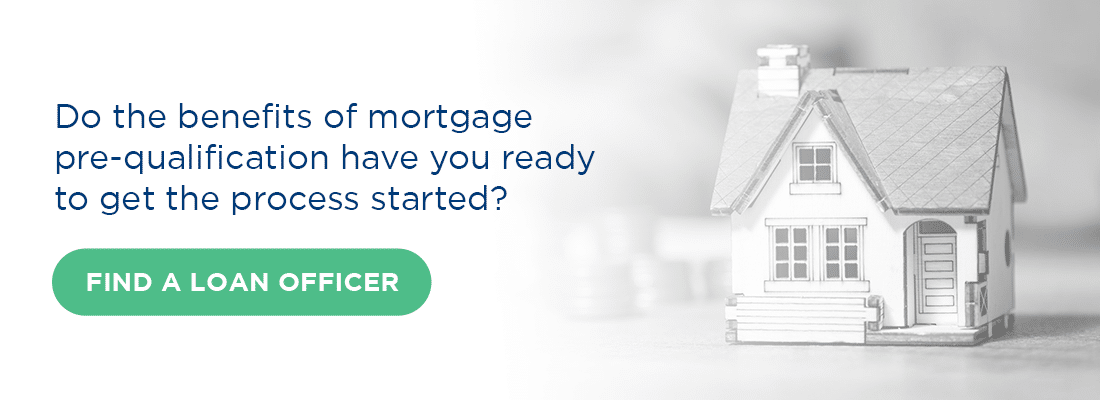Getting ready to purchase a house is an exciting and nerve-wracking journey. With so many steps on the road to becoming a homeowner, we know it’s easy to feel overwhelmed. There is one step you can take that will get you closer to your goal of owning a home. As a bonus, it helps you sort out your budget and boost your chances of sellers accepting your offer. The answer to some of your house hunting worries is pre-qualification for a mortgage.
Mortgage pre-qualification may seem like as big of a process as purchasing a home, but it is actually one straightforward step along the way. At Assurance Financial, we understand the pre-qualification process and want to help you achieve your dreams of homeownership. This article explains why you should get pre-qualified before looking for a home.
- What Is a Mortgage Pre-Qualification?
- Why You Should Get Pre-Qualified for a Mortgage
- When to Get Pre-Qualified for a Mortgage
- How to Get Pre-Qualified for a Mortgage
- Mortgage Pre-Qualification Process
- Get Pre-Qualified With Assurance Financial
What Is a Mortgage Pre-Qualification?
Mortgage pre-qualification means a lender is willing to provide you a certain amount of money to purchase a home. Pre-qualification doesn’t necessarily guarantee a mortgage. It does, however, provide a maximum loan amount that you could receive.
You may have heard the terms “pre-qualification” and “pre-approval” in the lending world. What you may not know is that there is a difference between the two:
- Pre-qualification: Consider pre-qualification to be an estimate. This number is not a guarantee because lenders base it on a simple financial overview. With an estimate of your credit score, monthly debts and a few other details, a lender provides a general number for what you pre-qualify. Pre-qualification does not have the same authority as pre-approval, but it will give you an idea of what you can get pre-approved.
- Pre-approval: Lenders base this on an in-depth analysis of your finances. Pre-approval is a hard number for a loan amount. You receive pre-approval after lenders conduct a credit check and review your completed mortgage application. While pre-approval still isn’t a guarantee, it is a more carefully estimated number than pre-qualification.
Why You Should Get Pre-Qualified for a Mortgage
You may think that getting pre-qualification adds another item on your house hunting to-do list. However, getting mortgage pre-qualified makes buying a house less stressful in the long run. By getting pre-qualified, you can:
- Know your budget: With pre-qualification, you can narrow down your pool of potential homes. Build your budget based on what a lender is willing to provide. You’ll have an upper limit that help you avoid looking at top-dollar homes that aren’t within your budget.
- Surpass other potential buyers: Having your pre-qualification in hand gives you an advantage over other possible buyers. It shows that you are ready and willing to purchase a home. Your competition may not have their pre-qualifications ready, so if you do, you’ll be more attractive to sellers than other buyers who aren’t as prepared.
- Make your offer more attractive: When you find your dream home and put in an offer, you want agents and sellers to pick you without hesitation. Mortgage pre-qualification helps put a seller’s mind at ease. Make them more likely to accept your offer with a simple step.
- Save time: Pre-qualification allows you to finalize your mortgage more swiftly after you’ve found the home of your dreams. There’s no need to fill out paperwork and wait for lenders to process it when you’re eager to get settled in your new house. Take care of everything beforehand so you have one less task to worry about as you buy a home.
- Solve any problems: As you obtain your pre-qualification, you may come across errors in your credit report or other documentation. Discovering these issues before purchasing a home will save you time and hassle.
- Plan other expenses: Having a price range to play in helps you map out additional costs that come with a home. Be sure to incorporate these into your budget so that you do not risk going over what the lender can provide. Calculate your current expenses in the mix, as well, for accurate numbers.
The above are all essential reasons to get pre-qualified for a mortgage. You wouldn’t make a substantial purchase without calculating your budget first, so why would you purchase a house without seeing how much a lender pre-qualifies for you? Ease some of your stress and get an idea of how much you can afford to put into a new house with mortgage pre-qualification.
When to Get Pre-Qualified for a Mortgage
If you’re wondering, “When should I get pre-qualified for a mortgage?” the answer is simple. As we’ve explained above, the best time to get pre-qualified is before house hunting. You shouldn’t jump right in and apply for pre-qualification without a timeline, though. Other factors contribute to when you should try to obtain mortgage pre-qualification.
- After you’ve checked your credit score: Check your score months in advance to have an idea of how a lender will respond to your application. While checking your score may cause an initial change, over time, it will return to its previous number or improve. Use this time to get your finances in order before you seek pre-qualification.
- Not long before beginning your house hunt: Especially if you think the process of searching for a home could take a couple of months, you’ll want to make sure your pre-qualification doesn’t expire before your search is over. Knowing your timing is a crucial part of when to get mortgage pre-qualification.
While we’ve said before that obtaining a pre-qualified mortgage makes your offer more attractive to sellers, it’s helpful to know why. Get pre-qualified before looking into a home because:
- Agents may not work with you unless you’re pre-qualified.
- It shows there will be little to no problems finalizing a mortgage.
- It tells sellers a bank has verified your information.
- Agents and sellers see that you’re serious about buying a home.
- Sellers may accept offers under asking price when submitted with pre-qualification.
- It strengthens your offer if you’re self-employed.
Mortgage pre-qualification says a lot to agents and sellers. Acquiring it can be a great tool to keep in your back pocket when negotiating pricing, competing with other potential buyers, or submitting an offer on your dream home. Such an impressive part of your application may seem like it would be difficult to acquire, but many processes for pre-qualification are more straightforward than you might expect.
[download_section]
How to Get Pre-Qualified for a Mortgage
Knowing the importance of mortgage pre-qualification may leave you wondering how to get pre-qualified in the first place. Your pre-qualification status and amount depend on different factors that lenders see from various documents you submit. Lenders verify certain aspects of your finances and your history, such as:
- Income and employment verification: To pay off the loan a lender pre-qualifies you for, you’ll need to have a source of income. Lenders want an idea of your annual income so they may properly evaluate how much to pre-qualify for you. Lenders may contact your place of employment to confirm your status there, as well.
- Assets: In addition to the money you have coming in, lenders also like to see what money, property or other assets you already have. Like income, assets contribute to how much you could potentially receive from a lender since they represent what payments you could handle.
- Credit: Specifically, lenders want to see a good credit score. Lenders evaluate credit scores because they factor your payment history, current debts, types of credit, length of history and any new credit accounts. These details all represent your financial ability and trustworthiness, among other qualities, that will assure a lender they can confidently provide you a loan.
Lenders look into your credit score and other aspects of your financial background when you apply. Rather than provide the lender with these numbers, you simply need to gather documentation. To confirm your employment, income, assets and debt, a lender will ask you to submit the following documents and information when you seek pre-qualification:
- Social Security number
- Form of identification, either your passport or driver’s license
- Federal and state tax returns, typically the two most recent
- W-2 forms and your two most recent pay stubs
- Two years of records and 1099 forms if you are self-employed, a freelancer or independent contractor
- Real estate income and rental property information
- 60 days of bank statements for the accounts you’re using to qualify
- Two months of statements from retirement and brokerage accounts
- Monthly and real estate debt statements
You may be asked to include relevant names, addresses and account numbers with the information you provide. Lenders may also ask for records of rent payment, divorce decrees or related court orders and documents from bankruptcy or foreclosure.
From the information above, a lender will determine if they can pre-qualify you and how much they can offer you. You’re more likely to get an offer if your credit score is a minimum of 600, so be sure to check and correct your score if necessary.
Mortgage Pre-Qualification Process
If you’ve got the documentation above ready to go, you’re almost ready to begin the mortgage pre-qualification process. Be sure to consider what to do before getting pre-qualified for a mortgage first.
You may want to check your credit score and credit reports before applying to know what loans you can apply for and solve any issues with your score. You should also consider your debt-to-income ratio. Calculate this using what you make per month and how much you owe back in debt or loans. Think about how your mortgage will factor into that number for an idea of what a lender could offer you.
Once you’ve evaluated your income, assets and credit, it’s time for the lender to do so. Every lender has an application for mortgage pre-qualification, and some offer convenient online forms to speed up this step. After you’ve applied, the length of the mortgage pre-qualification process depends on the lender. Here are the basics of that time frame:
- Sometimes, it may take as little as 24 hours or up to three days for a lender to pre-qualify you.
- If you are self-employed, it may take the full three days for a lender to calculate your pre-qualified rate.
- The lender’s workload and the availability of your information also influence how long mortgage pre-qualification takes.
- Gather the documents and information listed above and have them ready for the lender so the process is swift.
Apply Now
Your mortgage pre-qualification does not last forever. Because your credit score and other factors fluctuate, the average mortgage pre-qualification lasts between 60 to 90 days, though that number may change depending on the lender. Give yourself enough time to get pre-qualified before looking for a home, but be sure to keep the expiration date in mind as you search.
In addition to an expiration, paperwork from a lender can include other information, such as:
- The loan amount
- The type of loan
- The terms of the loan
- Estimated payments and interest
- Approximate closing costs
The details of your pre-qualification help you sort out your finances and plan how you will purchase your dream home. Remember that these numbers are not a guarantee of a mortgage.
Once you are pre-qualified, you must still go through the process of underwriting and finalizing a mortgage. Receiving the funds that a lender calculated in a mortgage pre-qualification depends on a few factors such as:
- A home inspection
- An acceptable home appraisal
- Adequate homeowner insurance
It may feel like a lot rides on obtaining mortgage pre-qualification, but the process is worth it since it gets you one step closer to your dream home. With all the benefits of organizing your budget and looking more appealing to sellers, getting pre-qualified is one step of home buying you should be sure to take.
Get Pre-Qualified With Assurance Financial
If you’re getting ready to purchase a home in the future, be sure to get pre-qualified for a mortgage. With us at Assurance Financial, you can get pre-qualified in 15 minutes for an idea of your pre-qualification rate. We have the latest in application technology to make the process smooth, fast and straightforward. If you’d prefer to meet with someone, you can also find a loan officer today to begin your journey of mortgage pre-qualification and home buying.
Do the benefits of mortgage pre-qualification have you ready to get the process started? Fill out our 15-minute online application for instant verification of your income and assets. We’ll provide a quote to start you on your home-buying journey. Contact us with any other questions you may have about the mortgage pre-qualification process. We’ll put your needs first and work with you to help your homeowner dreams come true!
Popular Loan Types
- First Time Home Buyer Loans
- FHA Loans
- Conventional Loans
- Construction Loans
- VA Loans
- Jumbo Loans
- Refinancing




